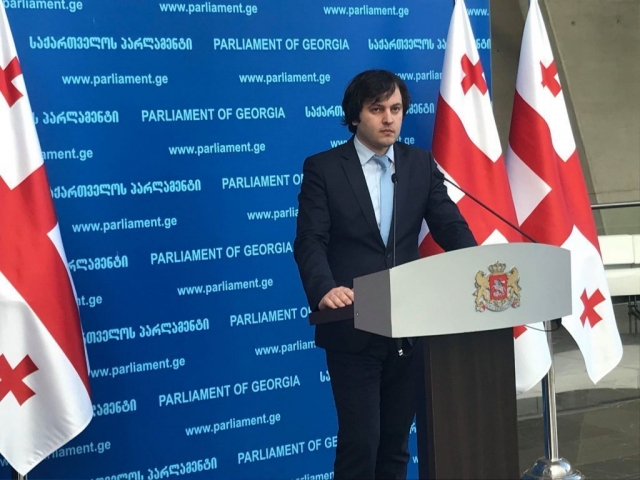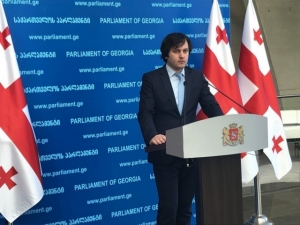Parliament to Adopt New Legislation on Drug Use this Fall
Chairman of the Parliament of Georgia, Irakli Kobakhidze, spoke with reporters yesterday about Parliament’s plans regarding legislating marijuana use. On July 30, the Constitutional Court of Georgia declared that administrative punishment for use of the drug marijuana was unconstitutional when consumption does not create any threat to third parties, effectively legalizing the consumption of marijuana.
“Our goal is a humane drug policy, on the one hand, and reduction of drug use in Georgia, on the other hand, and we will be guided by this principle,” said Kobakhidze, explaining that Parliament is currently working to draft legislation surrounding marijuana and other narcotics, which they hope to introduce in the fall session.
Kobakhidze added, “It is important for us to implement a balanced policy; it is one of our main priorities...The decision has been made by the Constitutional Court regarding marijuana and strict regulation is required to fill the [legislative] vacuum here. The [Parliament] continues work related to other drugs and there will be balanced decisions,” Kobakhidze said.
Tbilisi Mayor Kakha Kaladze also made a statement, urging Parliament to act on introducing “regulations in the direction of drug policy, otherwise we will get a heavy consequence,” he warned. “Reforms will be implemented in this direction and the work has already begun. Of course, everything should be placed in context,” said Kaladze.
Yesterday also saw the release of a 67-page report by the international nonprofit, non-governmental organization Human Rights Watch outlining their position on drug policy in Georgia, particularly relevant after the Constitutional Court’s decision.
Their main recommendation is that “Georgian authorities should decriminalize personal use and possession of drugs.”
The report is titled “Harsh Punishment: The Human Toll of Georgia’s Abusive Drug Laws.” As explained by Human Rights Watch, the report “describes the impact of overly punitive drug laws and practices on people who use drugs, and on their families. Human Rights Watch documented abusive, mandatory street drug testing, coerced plea bargains, and arbitrary additional punishments, such as stripping people of their driver’s licenses or prohibiting them from working in an array of professions, interfering with their ability to earn a livelihood. Georgia has partially liberalized drug laws, but they remain harsh.”
Annually, Georgian police randomly detain thousands of people for coerced drug testing for which fewer than 30 percent test positive, the report outlines, explaining how police use positive test results as evidence for pressing administrative or criminal sanctions.
The report also describes progress that has been made in recent years, saying “Some of the harsher features of Georgia’s current drug policies and practices were adopted in 2006, and starting in 2012, Georgia’s leadership partially liberalized them. The government reduced criminal penalties for drug possession and consumption. It also adopted a National Strategy and Action Plan to fight drug addiction...Recent constitutional court rulings further liberalized drug policies...The Georgian government offers, free of charge, opioid substitution with Methadone or Suboxone, and short-term detoxification and rehabilitation. Since 2012, the government has significantly increased financial allocations for these programs.”
The full report is available here.
By Samantha Guthrie
Related Stories:
Smoking Marijuana Legalized in Georgia
Constitutional Court: Reaction to the Decision on Marijuana is Damaging
Patriarch Condemns Marijuana Legalization












